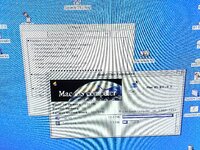cheesestraws
Well-known member
Or just use something like this instead of transformers? https://www.analog.com/media/en/technical-documentation/data-sheets/ADM2485.pdf
Oh, now that is a good idea.
Or just use something like this instead of transformers? https://www.analog.com/media/en/technical-documentation/data-sheets/ADM2485.pdf
I think the problem is the need for VDD2. LocalTalk cabling just has signal and ground, right?Or just use something like this instead of transformers? https://www.analog.com/media/en/technical-documentation/data-sheets/ADM2485.pdf
Their question seems to be the reverse, that they're asking people to test the un-upgraded firmware.I believe @Phipli upgraded the TT in an AirTalk and it fixed it on a x100 - but I'll let him speak for himself

Did you see my previous reply? I've not had any trouble using the old firmware on PCI macs, I don't think it impacts as many models as you suggest. We might have heard more about it given that is every professional Mac from 1993 to 1997!Just spitballing a theory. Curio's enhancements seem to be the only thing really different from the rest of the Macintosh SCC implementations. I also can't rule out that a specific driver revisions of an extension called "Serial DMA" may be the culprit. This extension apparently fixed various bugs with the serial ports over the years. One of the revisions may outright disable Curio's LocalTalk enhancements. FWIW, TashTalk worked fine with my Beige G3 running 9.2.2.... but that machine has the Heathrow I/O chip. That chip appears to lack Curio's enhancements and only has a standard ESCC core.
I also have a non-Apple device that isn't working with TashTalk that I'm going to test with the revised firmware soon. My HP LaserJet 4MP's onboard LocalTalk doesn't seem to like it. The board has a Zilog ESCC, but who knows what HP's programmers did with it!
